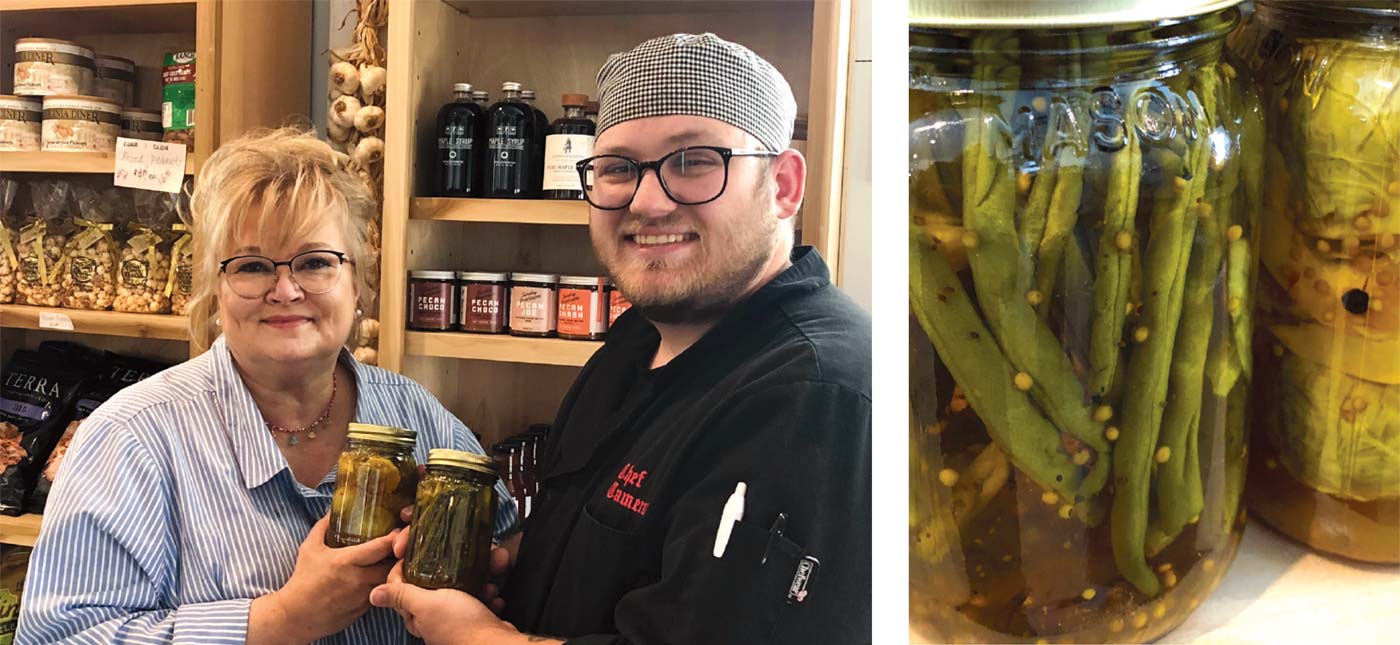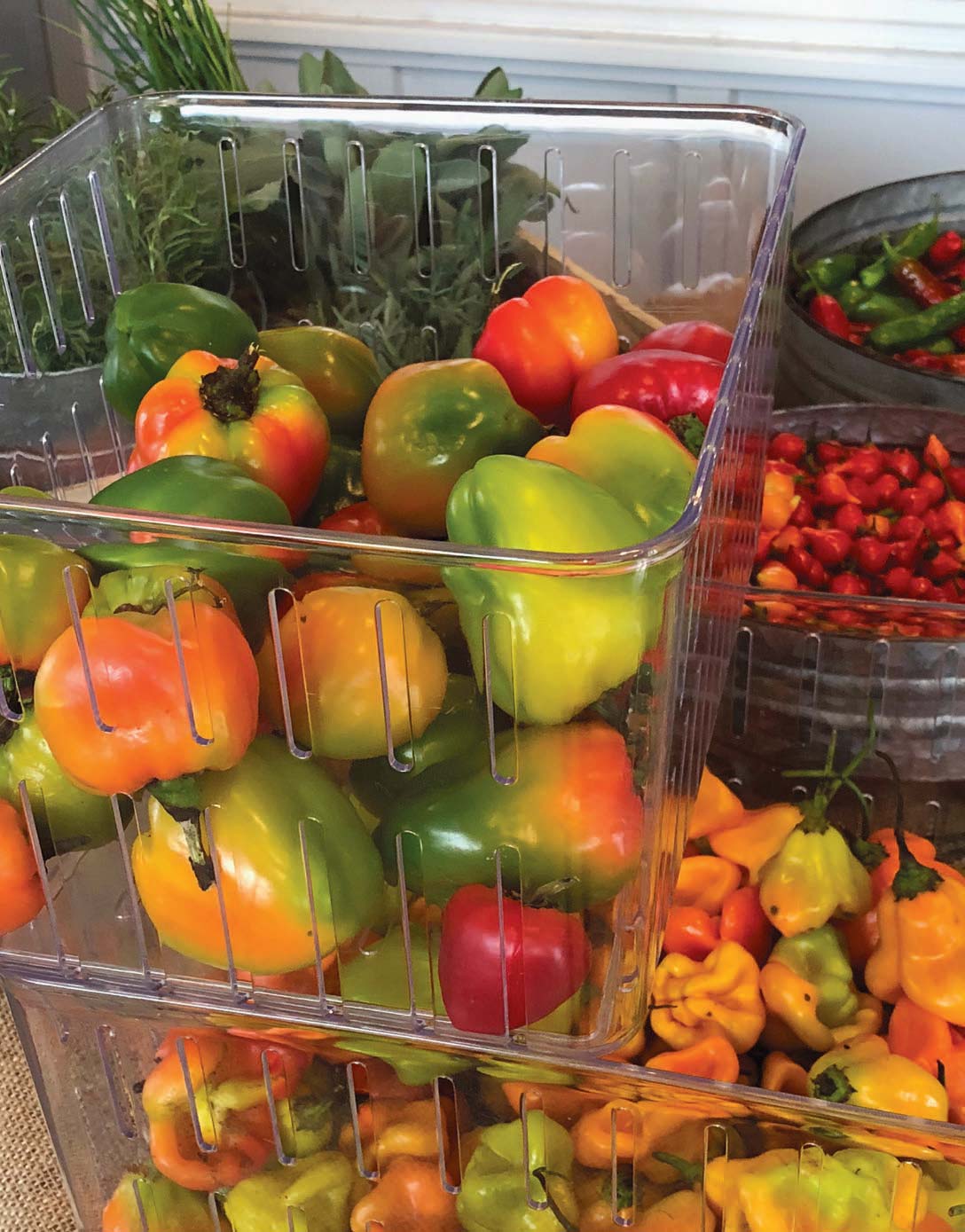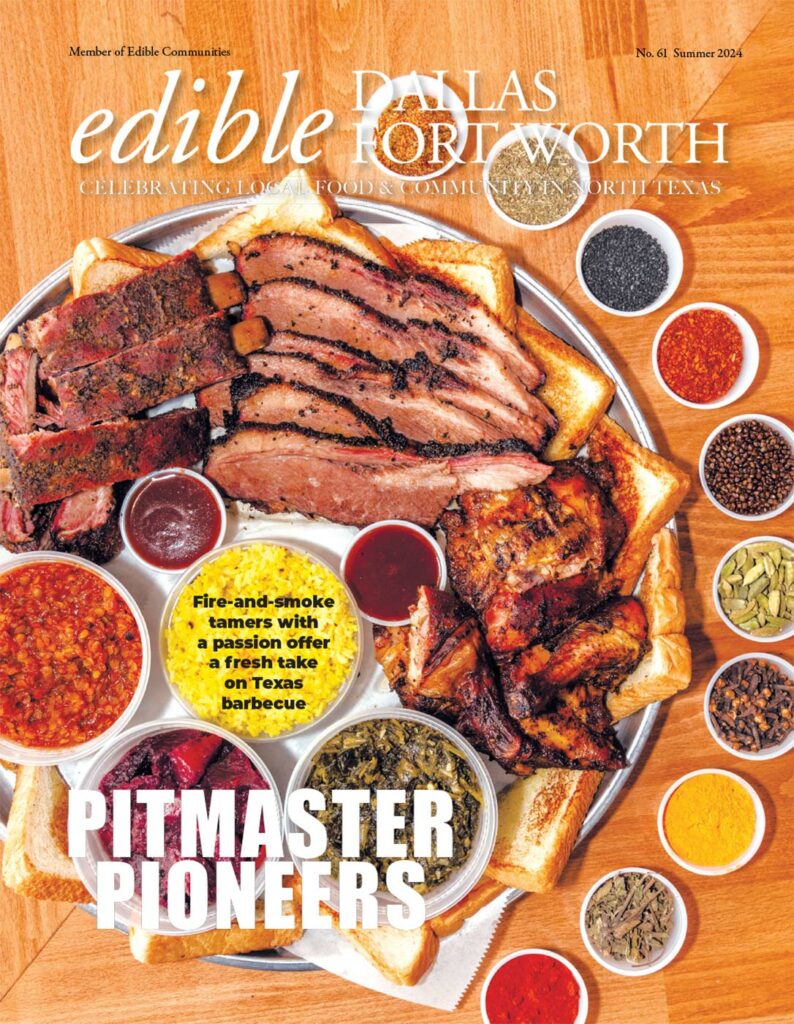Photography by Maria Whitworth

“Do you want a factory? Honestly, it could be the best thing to happen for this neighborhood.”
The idea was seeded nearly two years ago. Daron Babcock, Executive Director of Bonton Farms, and Donna Collins, Founder of The Jelly Queens, began imagining a facility for preserving food grown on the farm. “Let’s start small and see where it takes us.” From Babcock’s perspective, the idea was to provide jobs while becoming experts at the process of preserving, “so they can have food to eat all year long. Considering this is a food desert, that’s a pretty big thing.” For Collins, she’s wanted the ability for large-scale production done her way – incorporating a high level of care with sustainably produced and locally grown, organic ingredients. A factory would be a win-win and an even bigger win for the South Dallas community of Bonton.
“We’ve been making jelly for Bonton for over 4 years,” explains Collins. “We created 5 exclusive recipes utilizing simple and pure ingredients grown on the farm. The jellies sell really fast at the market – people know they’re getting a quality product while doing good at the same time. It’s a bonus factor.” Then two years ago, Angela Washington started coming to the “Jelly House” from Bonton every week to learn to preserve, and it had an immediate impact on her life. “When I’m here and around Ms. Donna, I have peace of mind. I have no one standing over me. She’ll coach me on how to go about solving an issue so I don’t have to stay angry about things. It’s building my confidence up to where I know that I got it.”
“Here at Bonton we have this idea – we want to change the world. We have pieces of it. We’re creating jobs and teaching skills and driving hope in the community,” says Babcock. “The Preservatory is bringing something new, and it’s evident in how Angela has adapted and is growing in important ways.”
Understanding the double-meaning of preservatory has deep relevance. In addition to being a place that preserves food from decay, it is also an obsolete word from the 17th or 18th Century meaning a charitable house of refuge for women and children – a place that protects and preserves them from moral and physical decay. As Babcock points out, “It’s so much more than making jelly. It’s taking things and people and giving them a new life. To see something or someone who may have a blemish and perhaps be ‘discarded’, but knowing there’s a higher value. When Donna gets our tomatoes, for example, they may be worth four dollars a pound fresh, and she makes something long-lasting that’s worth more – it’s a beautiful metaphor for what’s happening with people here.”

Phase 1 of The Preservatory at Bonton Farms opened in late summer with a kitchen containing four fully functioning stations plus the goal of expanding the kitchen and preservatory eventually into the entire building. “Right now, four people can work in the kitchen, and each person can make 100 jars of preserves in a day (about a 5-hour process once they know how to do it right). The expanded space will easily hold 10 stoves – so that’s 1,000 jars produced in that little building every day!” Collins is excited about the possibilities. “We want them to be able to preserve everything they can. They are already preserving on a small scale – recently, we pickled green beans, Brussels sprouts and 85 pounds of an ‘okra emergency’ pickling okra four ways and selling it all.”
Currently, Jelly Queens’ Chef Cameron Spencer works with Washington at The Preservatory two days each week, and they both work at the Jelly House with Donna the other days. As Washington progressively gets more experience and as production gets busier, they will bring on and teach more people.
And in Babcock’s estimation, that’s just the beginning.
“There’s no limit to how big we can scale this, both in the quality of the product and the good that comes out of it. We could create hundreds of jobs as The Preservatory grows into a large manufacturing facility. People are interested in the story behind the food they eat, now more than ever. As our story gets out and we manage this well, we could sell food to the world.”
The Market, Cafe and Coffee House at Bonton Farms are open 6 days a week. BontonFarms.org. The Jelly Queens told us that in addition to their kitchen, they’ll soon have a retail location near the square in Downtown McKinney. TheJellyQueens.com











